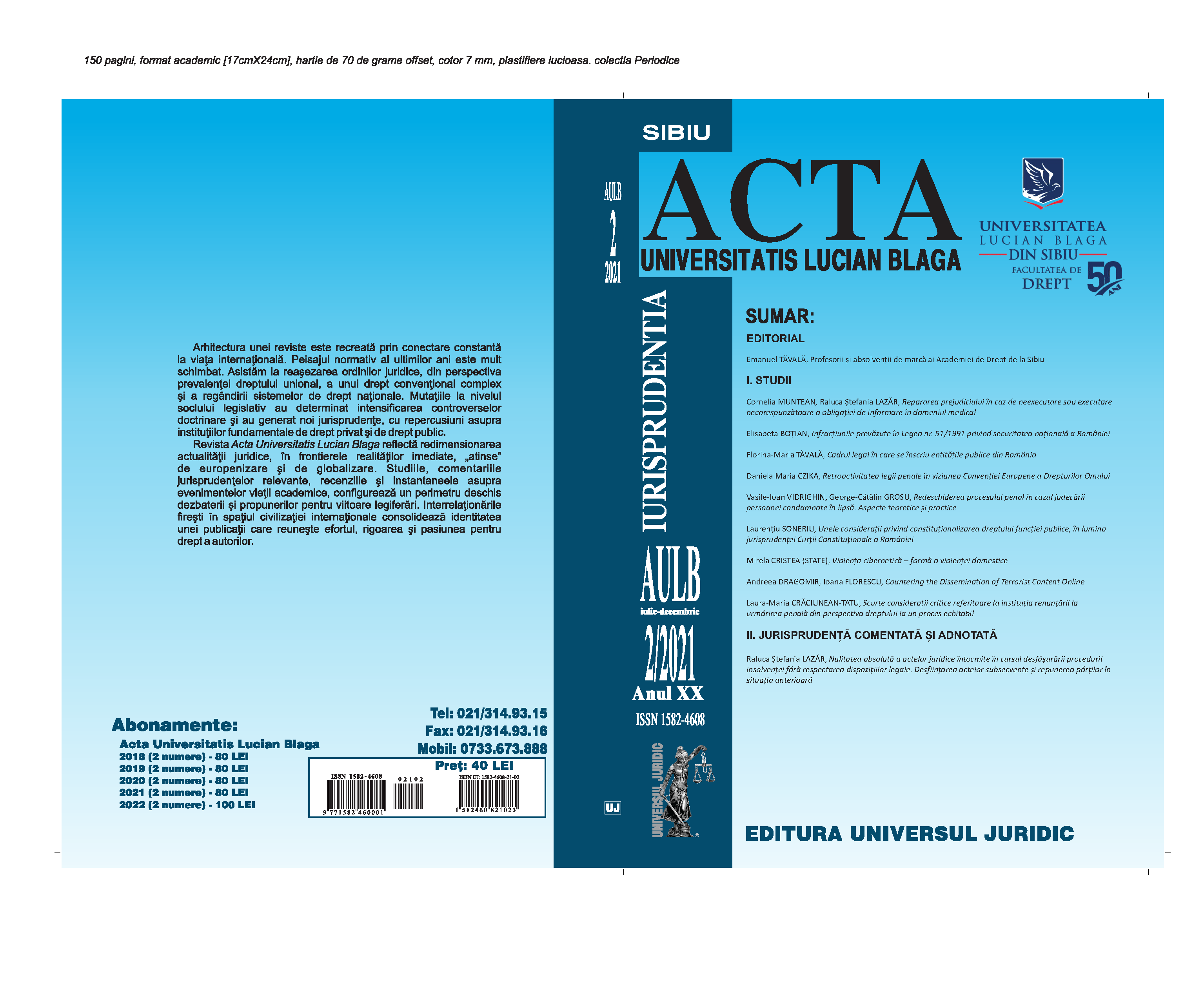Retroactivitatea legii penale în viziunea Convenției Europene a Drepturilor Omului
Criminal law retroactivity in the vision of the European Convention on Human Rights
Author(s): Daniela Maria CzikaSubject(s): Law, Constitution, Jurisprudence, Civil Law, Human Rights and Humanitarian Law, EU-Legislation
Published by: Universul Juridic
Keywords: legality; retroactivity; lex praevia; decriminalization; more favorable law;
Summary/Abstract: The principle of legality, acknowledged in both domestic and international law, is part of the foundation of Romanian criminal law. It is one of the basic pillars on which the entire criminal law is constructed. With its three dimensions – lex scripta, i.e., indictment can be followed only based on written law, lex certa, i.e., drafting criminal law with clarity and predictability, and lex stricta, i.e., criminal law must be strictly interpreted – the principle of legality aims to protect the citizen against illicit criminal repression but also to ensure legal certainty in criminal matters. Together with the previously mentioned components, lex praevia comes to complete the underlined finality of the discussed principle by prohibiting retrospective criminal laws. From the perspective of domestic law, the principle of legality falls into the category of principles governing the application of criminal law over time. From the perspective of the European Convention on Human Rights, it is seen as a fundamental human right, indispensable in a democratic society.
Journal: Acta Universitatis Lucian Blaga. Iurisprudentia
- Issue Year: 2021
- Issue No: 02
- Page Range: 65-75
- Page Count: 11
- Language: Romanian
- Content File-PDF

